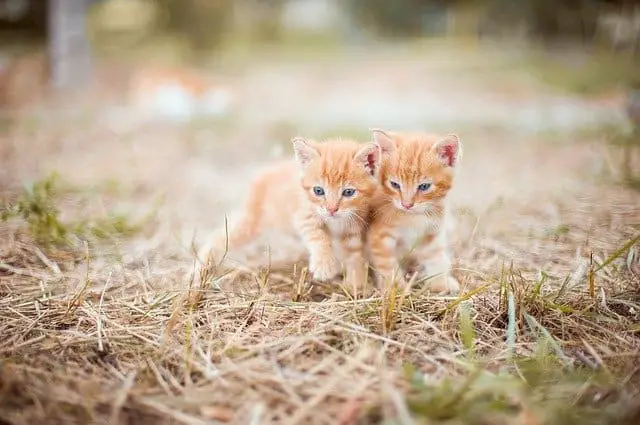
Is the little cat of the house constipated and you don’t know how to help him? Let’s see what are the best methods and effective tricks to stimulate a kitten to defecate.
Your cat sleeps, eats but is there something wrong with its normal physiological functions? It may happen that the little new born feline suffers from constipation: it is important to understand what are the signals that his body sends us and to intervene with effective and least painful remedies. Here’s how to get a kitten to defecate before constipation can cause serious health problems.
Constipation in kittens: symptoms and causes
For owners of cats who are still inexperienced, it is important to understand what are the signals that the kitten’s body sends us when it is in pain and cannot expel feces. It is precisely from the latter that we can obtain important clues on the feline difficulty in freeing themselves.
The feces of the cat suffering from constipation are in fact quite hard and dry, the result of an effort by the cat in expelling them. Furthermore, if we happen to witness the evacuation of the constipated feline, we will notice that all his efforts are actually in vain. The cat will therefore appear in pain because, despite the effort, it will not be able to defecate.
If the constipation were to be prolonged over time, the cat would run serious risks for its health: first of all it will seem very tired, dozing and could suffer from lethargy. He may also refuse to eat and suffer from loss of appetite; moreover, episodes of vomiting are not excluded.
There are usually two causes of constipation in cats: the first concerns a deep and prolonged state of dehydration, while the second is called ‘megacolon’, that is, a muscle loss of the colon that fails to pass the feces.
Stimulating a kitten to defecate: when necessary
Usually a feline will shed regularly once a day: in fact we can realize this by looking (and cleaning) its litter, which must always be clean to convince it to perform its vital functions.
The ‘daily’ frequency of feces also depends on the amount of food that the cat has; but if we see that after two or three days the litter box remains empty, we need to start worrying. It could also be a momentary ‘problem’, that is a moment of transition and regularization of the vital and physiological functions of the feline.
The greatest risk is that of an intestinal blockage in the cat: if the feces accumulate in the intestine, they could ‘clog’ the colon and create a sort of ‘plug’. Only the veterinarian will be able to intervene to resolve the evacuation of the cat and ‘free’ it.
Stimulating a kitten to defecate: when remedies depend on the causes
If we can understand why a feline is unable to defecate, it will also be very useful for us to discover the causes both to solve the problem and to prevent it. The causes that induce a feline not to defecate can include:
- state of the litter box,
- dehydration of the cat ,
- poor diet,
- cat obesity,
- hairballs,
- back or hip problems,
- have ingested a foreign body.
Let’s take care of a thorough and constant cleaning of the litter box, so that the cat always finds it clean and ready for use; we never forget to always fill the bowl with fresh water and give him foods that contain proteins and fibers and few carbohydrates and fats.
If the kitten is overweight, its metabolism could undergo important changes in functioning; furthermore, foreign bodies and hairballs in cats can form a sort of ‘plug’ in their intestines which, if they cannot be expelled, must be surgically removed. If, on the other hand, it is a postural problem, and in particular in the back or hips, you must ask your veterinarian for advice to understand how to act.
Stimulating a kitten to defecate: other very useful tricks

If we are fond of the usual grandmother‘s remedies, let’s not forget that olive oil can be very useful in circumstances like this. However, we must not exaggerate with the doses, but at least initially it can be a valid alternative to drugs. Another trick is to give the cat very high fiber foods, which stimulate and facilitate the evacuation. In the worst cases, the veterinarian himself will suggest that the feline undergo a series of gastric lavages or, as a last resort, surgery to remove the obstacle to defecation.






